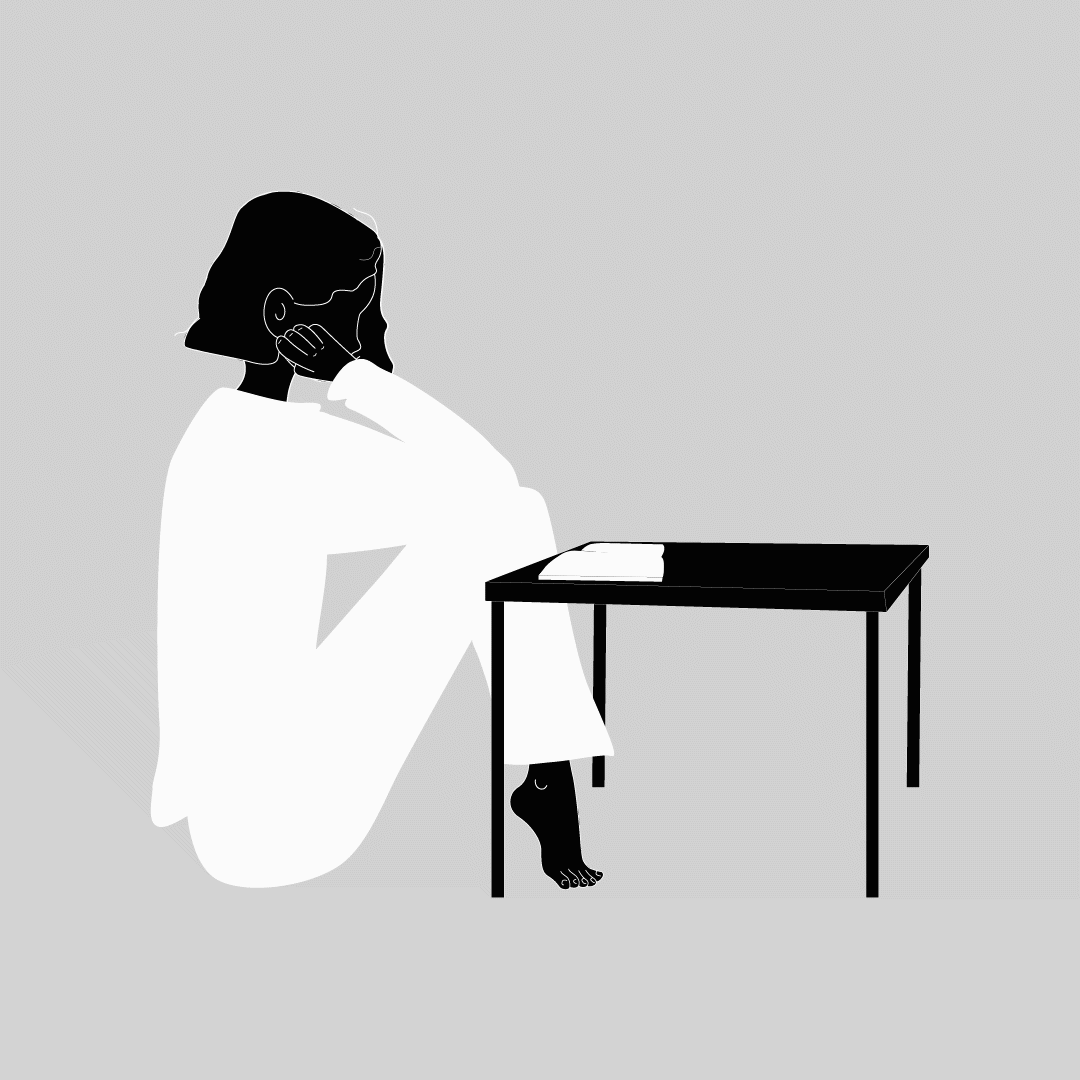LACK OF STUDENT INCLUSION IN ONLINE LEARNING DURING THE PANDEMIC
When Kosovo was affected by the Covid-19 virus, a few days after, the issue of teaching in schools and universities was raised, and the measures to be taken by the Ministry of Education, Science, Technology and Innovation in this situation so that students will not be left without lessons. According to statistics of “MESTI” and the Kosovo Agency of Statistics preventive measures announced by the Government of Kosovo against the spread of Covid-19 on March 11, 2020 have affected the lives and education of about 450,146 pupils and students in Kosovo.
Ilustration: Argjira Kukaj

On March 11, all schools in Kosovo were closed. This is due to the spread of Covid-19 virus in many countries around the world. According to a UNESCO report, more than 1 billion 575 million pupils and students in about 188 countries around the world have been reported to have been affected by the closure of schools and universities due to preventive measures taken by states against the spread of Covid-19.
When Kosovo was affected by this virus, immediately after a few days, the issue of teaching in schools and universities was raised and measures to be taken by the Ministry of Education, Science, Technology and Innovation in this situation so that students should not be left without learning. According to statistics from MEST and the Kosovo Agency of Statistics, the preventive measures announced by the Government of Kosovo against the spread of Covid-19 on March 11, 2020 have affected the lives and education of about 450,146 pupils and students in Kosovo.
On March 23, online learning based on a strategy by the Ministry of Education began in universities and primary and later secondary schools. Social inclusion is a matter for the whole of society and not just the education system. Inclusive education, as a first step towards social inclusion, is to the benefit of society as a whole. But Kosovo, like other Western Balkan countries, is facing a lack of inclusion in online learning. But what are the influential factors that have made it impossible to have inclusion in online learning?
According to a study conducted in April this year by the University of Prishtina on the impact of Covid-19 on education, one of the main factors is the lack of technological tools that do not possess a number of students, due to economic conditions, emphasizing that students do not have a computer at home (41.7%).
This necessarily excludes some students from accessing online learning, and what has affected the lack of technological means is the unemployment of family members or low incomes. According to the publication of the results of the Labor Force Agency, published by KAS, the unemployment rate in 2019 was 25.7%. This greatly affects students and pupils where the highest unemployment rate is in the 15-24 age group with 49.4%.
The most discriminated groups and excluded from online learning related to unemployment are minority communities; Roma, Ashkali and Egyptian, as the most discriminated and poorest stratum of all other communities in Kosovo. Based on statistics from the Office for Community Affairs which operates within the Office of the Prime Minister, the unemployment rate of these communities is 90-100% due to the poor socio-economic position. However, this makes it difficult to access education and specifically online learning because most do not own a phone or computer as the main tool, and then the internet that is required to access virtual learning. Comprehensive learning is not being achieved with other marginalized groups, such as children with disabilities. About 5,300 children out of a total of 43,000 with disabilities in Kosovo attend school, but what happens with online learning, where most of them may not have the skills to use the technology, and then support the performance? teaching tasks, which are numerous. Although as a good opportunity during this time of the virus to include the rest who have found it impossible to maintain physical education in school, but relevant institutions have not taken adequate initiatives to carry out comprehensive learning in this regard. The Covid-19 pandemic has brought many challenges in all areas, but the will and readiness of other institutions and actors is needed to enable all students to have equal access to online learning, as the right to education is guaranteed by all conventions. for human rights, as well as with the Constitution of Kosovo.
Economic development, reducing unemployment, creating professional strategies for digital learning, exchanging experiences in the framework of children with special needs, are the main points where institutions should now focus on achieving inclusion in online learning and in education in general.
About the author: Leotrim Pajaziti, 20 years old, who comes from the village of Shalë municipality of Lipjan, he’s a second year student at the Faculty of Law at the University of Prishtina
This grant is supported by the ‘Civil Society programme for Albania and Kosovo’, financed by the Norwegian Ministry of Foreign Affairs and managed by Kosovar Civil Society Foundation (KCSF) in partnership with Partners Albania for Change and Development (PA).


